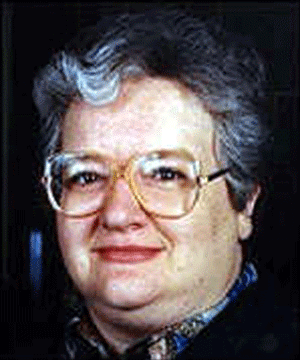by BBC News
May 18, 1999
NOTICE: THIS WORK MAY BE PROTECTED BY COPYRIGHT
YOU ARE REQUIRED TO READ THE COPYRIGHT NOTICE AT THIS LINK BEFORE YOU READ THE FOLLOWING WORK, THAT IS AVAILABLE SOLELY FOR PRIVATE STUDY, SCHOLARSHIP OR RESEARCH PURSUANT TO 17 U.S.C. SECTION 107 AND 108. IN THE EVENT THAT THE LIBRARY DETERMINES THAT UNLAWFUL COPYING OF THIS WORK HAS OCCURRED, THE LIBRARY HAS THE RIGHT TO BLOCK THE I.P. ADDRESS AT WHICH THE UNLAWFUL COPYING APPEARED TO HAVE OCCURRED. THANK YOU FOR RESPECTING THE RIGHTS OF COPYRIGHT OWNERS.

Oil seed rape has been genetically modified
The government has rejected a call by doctors for an open-ended ban on the commercial planting of genetically-modified crops.
A report from the British Medical Association claims that sufficient evidence that GM organisms are safe has not yet been gathered, and that they should not be released into the environment until the level of 'scientific certainty' makes it acceptable.
The ban should continue, it says, until there is scientific consensus about the likelihood of long-term effects.
But the Cabinet Office Minister Dr Jack Cunningham told the BBC's Breakfast News that there was no evidence to justify a ban.
He said not even environmentalists supported an indefinite moratorium and claimed the BMA had "expressed satisfaction" with a government report on how GM food use is monitored.
Dr Cunningham said the review, written by the government's chief medical officer and chief scientific advisor and to be published shortly, showed no evidence for withdrawing any GM food currently on the market.
He added that the government was not giving in to commercial organisations and put health and safety at the top of its agenda.
But he said it had to ensure that biosciences were "properly managed in the interests of Britain and the economy as a whole".
Rowett Institute
The BMA call comes 24 hours before the publication of two high-level reports into the controversial scientist whose work sparked the original GM debate.
Dr Arpad Pusztai, from the Rowett Institute in Aberdeen claimed rats fed GM potatoes had suffered damaged internal organs and immune systems.
The institute accused him of publicising unproven theories, and confusing his results with those from other experiments.
On May 18, the influential Royal Society will release a review of Dr Pusztai's work, and the House of Commons Science and Technology Select Committee will publish its report into the handling of the affair.
The BMA report calls for the government's proposed regulatory body, the Food Standards Agency, to be established quickly, given control over GM food production, and even consider a complete ban on products which mix GM and non-GM ingredients.
Sir William Asscher, Chairman of the BMA's Board of Science and Education said: "Once the GM genie is out of the bottle, the impact on the environment is likely to be irreversible. That is why the precautionary principle is so particularly important on this issue."
The BMA also claims that the use of antibiotic-resistant 'marker genes' in GM crops could make human diseases more difficult to treat as so-called superbugs develop their own resistance.
The government would also have to step up its own disease monitoring procedures, says the report, to look out for new diseases possibly caused by GM foods.
Allergic reactions

Dr Vivienne Nathanson fears GM food will spread antibiotic resistance
Dr Vivienne Nathanson, BMA Head of Health Policy and Research, told the BBC: "This is the first time that a group of doctors have said: `We think there is reason to be far more cautious, to take time in making sure we actually do understand the science.'.
"Because once we have discharged them into the environment, you cannot turn the clock back." The government currently allows limited planting of GM foods for research purposes, and will have to decide next spring whether to allow more widescale commercial planting.
A spokesman for GM producer Monsanto said: "How much more regulation do the BMA want? GM crops and GM foods are the most highly regulated novel products available."
Interviewed by the BBC, the government's Chief Scientific Officer Sir Robert May said that if a particular threat to health could be identified, regulatory bodies would take action.
He said: "That is a bit different from the vaguely non-specific thing of saying anything new might have something unexpected - and you could invoke that against any novel food."
David Curry MP, a Conservative member of the House of Commons Select Committee on Food Standards, told the BBC that there was no evidence 'that anyone could point to' of a medical risk.
But he added there was a lot of confusion around about GM food.
In an edition of the BBC's Panorama, broadcast on May 17, Prof Mike Roberts, from the Natural Environment Research Council, said that the GM crop trials he runs for the government could fail because of public pressure over the issue.
